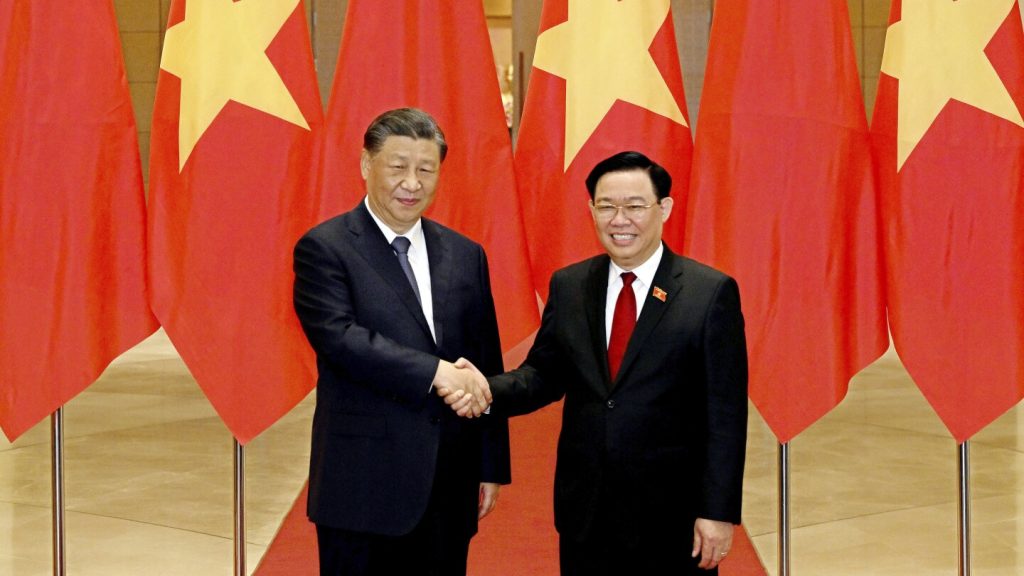Vietnam’s political landscape is facing upheaval as another senior government official, National Assembly Chair Vuong Dinh Hue, resigns amidst an ongoing anti-corruption campaign. This follows the resignations of President Vo Van Thuong and former President Nguyen Xuan Phuc, highlighting the instability in the country’s leadership. Hue’s resignation came after his assistant was arrested on corruption charges, although initial reports did not implicate him directly. The Communist Party accepted his resignation, citing violations of Party regulations that affected the reputation of the Party, the State, and himself.
With Hue being the fourth most important politician in Vietnam, his resignation could have far-reaching implications for the country’s political and economic stability. Vietnam is seeking to position itself as an alternative to China in the region’s supply chain and attract investors like Apple CEO Tim Cook. However, the ongoing anti-corruption campaign, including the recent arrest of Thuan An Group members, has created uncertainty for businesses and investors. The campaign has also led to significant consequences, such as the death sentence for real estate tycoon Truong My Lan in Vietnam’s largest-ever fraud case.
Hue’s resignation further complicates Vietnam’s political landscape, as he was seen as a likely successor to current Communist Party chief Trong. The upcoming Communist Party congress in 2026 will be crucial in determining the country’s future leadership. As Trong, who was elected to a third term as party chief in 2021, is unlikely to continue for another term due to his age, potential successors are already jostling for position. The succession crisis in Vietnam is deepening, with key figures being removed from their positions due to corruption allegations.
The resignation of top leaders like Hue not only impacts Vietnam’s political stability but also raises concerns about the country’s ability to achieve its economic ambitions. The ongoing anti-corruption campaign has sent shockwaves through the political and business elites, with more arrests and resignations expected in the coming months. As Vietnam seeks to attract foreign investment and position itself as a regional economic powerhouse, the leadership turmoil could undermine these efforts. The country’s leaders will need to navigate the current crisis and ensure a smooth transition of power to maintain stability and investor confidence.
The latest developments in Vietnam’s political landscape underscore the challenges facing the country as it seeks to balance its anti-corruption campaign with its economic ambitions. The removal of key leaders like Hue has created uncertainty among investors and businesses, impacting the country’s reputation and position in the region. The upcoming Communist Party congress will be a crucial moment for Vietnam, as it will determine the country’s future leadership and direction. Despite the current challenges, Vietnam has shown resilience in the face of adversity and has the potential to overcome the current crisis with strategic leadership and decisive action.


